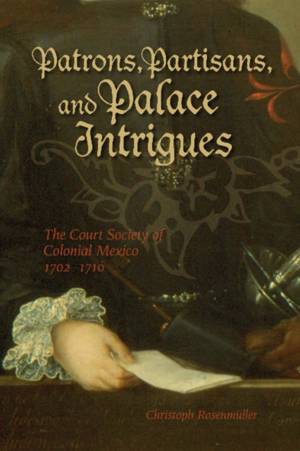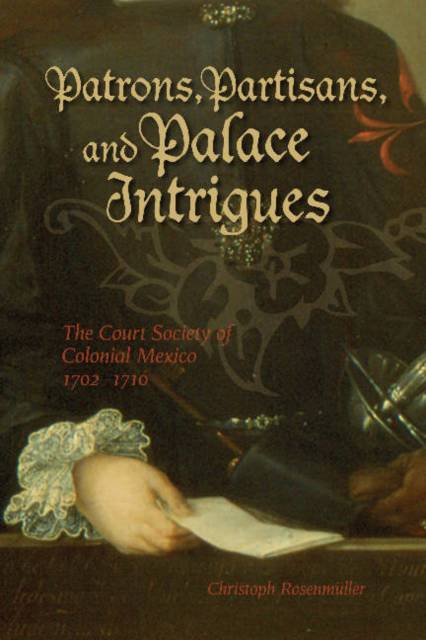
- Afhalen na 1 uur in een winkel met voorraad
- Gratis thuislevering in België vanaf € 30
- Ruim aanbod met 7 miljoen producten
- Afhalen na 1 uur in een winkel met voorraad
- Gratis thuislevering in België vanaf € 30
- Ruim aanbod met 7 miljoen producten
Patrons, Partisans, and Palace Intrigues
The Court Society of Colonial Mexico 1702-1710
Christoph RosenmullerOmschrijving
Palace intrigues and clientelism drove politics at the viceregal court of colonial Mexico. By carefully reconstructing social networks in the court of Viceroy Duke of Alburquerque (1702-1710), Christoph Rosenmüller reveals that the Duke presided over one of the most corrupt viceregal terms in Mexican history.
Alburquerque was appointed by Spain's King Philip V at a time when expanding state power was beginning to meet with opposition in colonial Mexico. The Duke and his retainers, though seemingly working for the crown, actually built close alliances with locals to thwart the reform efforts emanating from Spain. Alburquerque collaborated with contraband traders and opposed the secularization of Indian parishes. He persecuted several local craftsmen and merchants, some of whom died after languishing in jail, accusing them of treason to bolster his own credentials as a loyal official. In the end, however, the dominant clique at the royal court in Madrid sought revenge. Alburquerque was forced to pay an unheard-of indemnity of 700,000 silver pesos to regain the king's favour.
Dealing with a topic and period largely ignored by historiography, Rosenmüller exposes the vast patronage power of the viceroy at the historical watershed between the expiring Habsburg dynasty and the incoming Bourbon rulers. His analysis reveals that precursors of the Bourbon reforms and the struggle for Mexican independence were already at play in the early eighteenth century.
Specificaties
Betrokkenen
- Auteur(s):
- Uitgeverij:
Inhoud
- Aantal bladzijden:
- 288
- Taal:
- Engels
- Reeks:
- Reeksnummer:
- nr. 6
Eigenschappen
- Productcode (EAN):
- 9781552382349
- Verschijningsdatum:
- 23/04/2008
- Uitvoering:
- Paperback
- Formaat:
- Trade paperback (VS)
- Afmetingen:
- 156 mm x 228 mm
- Gewicht:
- 467 g

Alleen bij Standaard Boekhandel
Beoordelingen
We publiceren alleen reviews die voldoen aan de voorwaarden voor reviews. Bekijk onze voorwaarden voor reviews.











